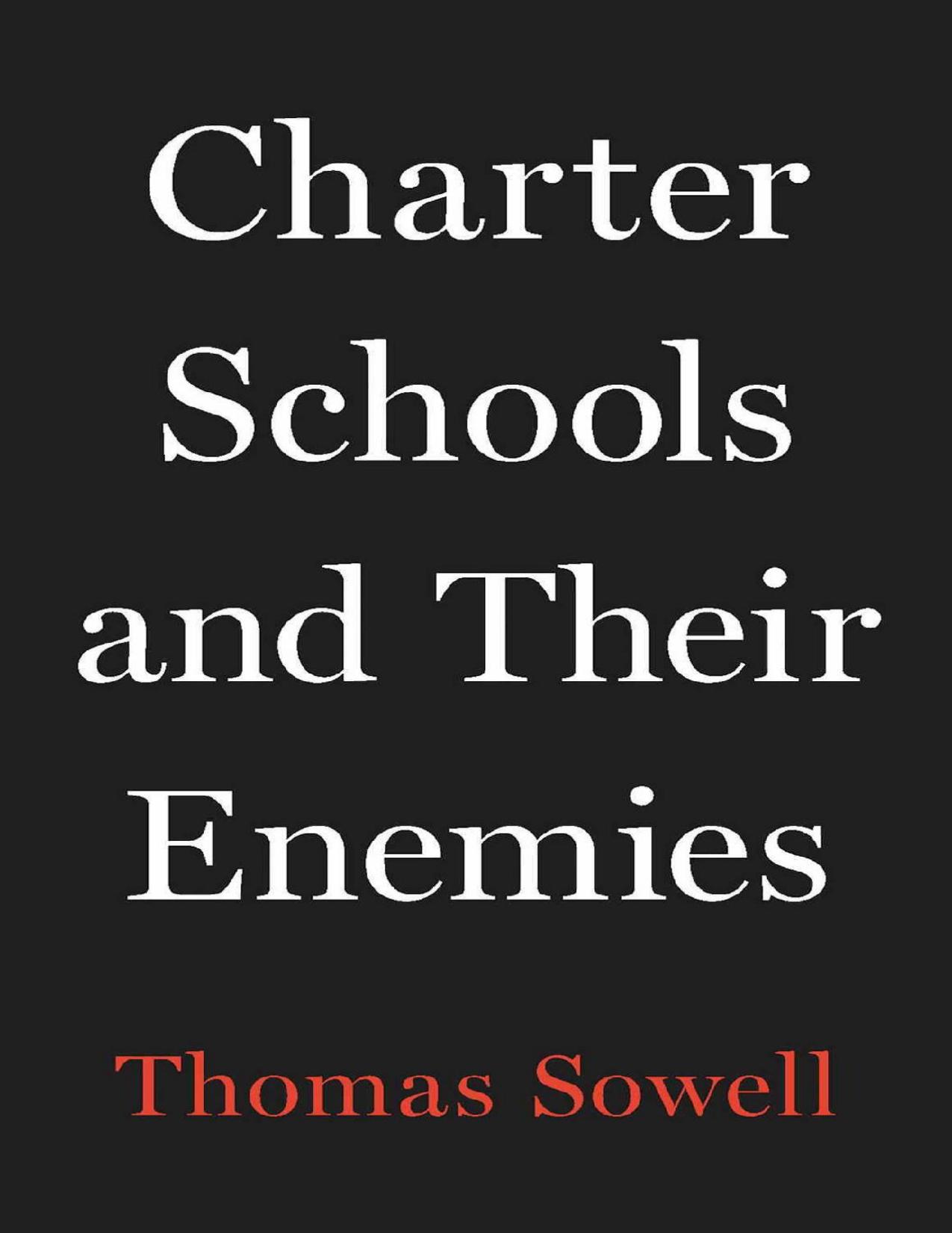Charter Schools and Their Enemies by Thomas Sowell

Author:Thomas Sowell [Sowell, Thomas]
Language: eng
Format: epub, mobi, pdf
Publisher: Basic Books
Published: 2020-07-14T00:00:00+00:00
Sorting and Unsorting Students
Although cultural differences have often been discussed in the context of differences between ethnic or socioeconomic groups, such differences are both present and consequential within the same ethnic or socioeconomic groups. Differences in student attitudes toward education within both black and Hispanic populations, for example, have already been noted. There have been similar internal cultural differences within innumerable other ethnic groups in countries around the world. One consequence is that they tend to sort themselves out internally, as well as being sorted out by others.56
When there is a charter school in a Harlem neighborhood, for example, there is no need to assume that parents who try to get their children into that charter school have the same cultural values and personal priorities as parents who do not. While some critics of charter schools may depict these schools as cherry-picking the students they admit57— despite the widespread use of lotteries for admissions purposes— there is no need to overlook the possibility that highly motivated parents may be more common among the parents of children in charter schools.
The importance of self-motivation, by both parents and students, in the educational process has been used by critics of charter schools, and defenders of traditional public schools, as an “unfair” advantage that charter schools have, because traditional public schools have to accept all students, motivated or not. As Diane Ravitch put it: “Our schools cannot improve if charter schools siphon away the most motivated students and their families in the poorest communities from the regular public schools.”58 But the issue is not so simple as that.
While those parents who enter their children’s names in the lotteries for admission to charter schools may well be more motivated to promote their children’s education, and to cooperate with schools in doing so, those who win in these lotteries are greatly outnumbered by those who do not win— as in other lotteries in general. In 2017, for example, there were 17,000 applicants for 3,000 places available in the Success Academy charter schools.59 When charter schools take a fraction of the children from motivated families, why does that prevent the traditional public schools from comparably educating the remaining majority of children from those motivated families?
A survey of empirical studies in various cities indicates that students who were motivated to enter lotteries for admission to charter schools— but who did not win in these lotteries— did not subsequently do as well in the traditional public schools as those who happened to be lucky enough to win and enter charter schools. For example, the Wall Street Journal reported:
Download
Charter Schools and Their Enemies by Thomas Sowell.mobi
Charter Schools and Their Enemies by Thomas Sowell.pdf
This site does not store any files on its server. We only index and link to content provided by other sites. Please contact the content providers to delete copyright contents if any and email us, we'll remove relevant links or contents immediately.
| Administration | Assessment |
| Educational Psychology | Experimental Methods |
| History | Language Experience Approach |
| Philosophy & Social Aspects | Reform & Policy |
| Research |
The Art of Coaching Workbook by Elena Aguilar(48067)
Trainspotting by Irvine Welsh(20056)
Twilight of the Idols With the Antichrist and Ecce Homo by Friedrich Nietzsche(17707)
Fangirl by Rainbow Rowell(7834)
Periodization Training for Sports by Tudor Bompa(7329)
Change Your Questions, Change Your Life by Marilee Adams(6641)
This Is How You Lose Her by Junot Diaz(5774)
Grit by Angela Duckworth(4738)
Red Sparrow by Jason Matthews(4668)
Asking the Right Questions: A Guide to Critical Thinking by M. Neil Browne & Stuart M. Keeley(4576)
Paper Towns by Green John(4169)
Room 212 by Kate Stewart(4107)
Ken Follett - World without end by Ken Follett(3973)
The Sports Rules Book by Human Kinetics(3588)
Housekeeping by Marilynne Robinson(3402)
The Motorcycle Diaries by Ernesto Che Guevara(3333)
Introduction to Kinesiology by Shirl J. Hoffman(3301)
Exercise Technique Manual for Resistance Training by National Strength & Conditioning Association(3292)
Double Down (Diary of a Wimpy Kid Book 11) by Jeff Kinney(3274)
